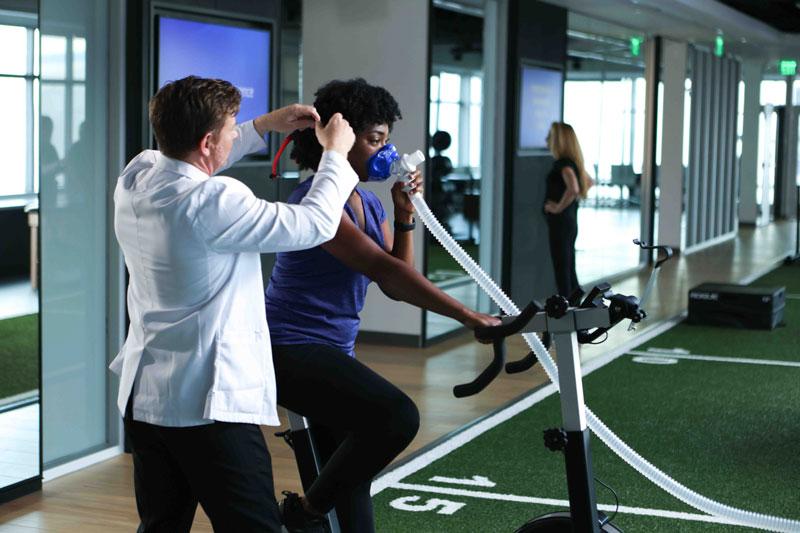Neurology conditions can be pretty confusing for anyone dealing with neurology issues and the people around you. Did you know that there are a variety of neurological conditions? In fact, there are more than 1,000 neurological disorders currently known to doctors.
Unfortunately, they can be fairly common too – with up to 15% of the worldwide population currently suffering from some form of neurological condition. What’s more, many people don’t even know they have a neurological disorder – leading to worsening symptoms, and sometimes even loss of independence.
That’s why it’s critical that you understand the symptoms of common neurological disorders. Knowledge is power and can be the difference between prompt care and untreated medical needs. Let’s discuss the most common neurological disorders we see and key ways to identify each one.
What Is a Neurological Condition
A neurological condition is defined as a medical disorder that affects your brain, or nervous system. This can cause a multitude of symptoms and loss of ability in your spine and other parts of your body.
There are a wide range of conditions, with some that can be treated and cured – and others that require lifelong management and treatment.
It’s crucial to familiarize yourself with the symptoms of common neurological issues so you are able to recognize and respond promptly if any symptoms arise.
Common Neurological Conditions That We See
Concussions and Their Symptoms
If you experience a blow to the head or endure a vigorous shaking of the head and upper body, such as in a car accident or contact sport, it can lead to a type of brain injury commonly referred to as a concussion. They are very common, with up to 3.8 million sports and recreation-related concussions occurring in the United States each year.
The symptoms of a concussion may not be immediately apparent and can develop gradually. If you suspect you may have a concussion, watch for signs such as:
- Headache
- Ringing in the ears
- Nausea
- Vomiting
- Blurry vision
- Dizziness
- Confusion
- Forgetfulness
- Sensitivity to light and noise
- Disturbances in sleep.
Seek urgent medical care if your headache gets worse, if there is consistent vomiting or nausea, blood draining from your nose or ears, changes in your behavior, slurred speech, confusion, constant ringing in your ears, and seizures.
Strokes and Their Symptoms
Having a stroke is a significant health concern in the United States, ranking as one of the leading causes of disability and mortality. 795,000 Americans have a stroke each year.
A stroke occurs when the blood supply to the brain is interrupted or reduced, leading to damaged brain cells. The symptoms of a stroke can vary but often include sudden numbness or weakness in the face, arm, or leg, especially on one side of the body. Other common signs include:
- Confusion
- Trouble speaking or understanding speech
- Difficulty walking
- Sudden clumsiness
- Dizziness
- Severe headache.
Early recognition of these symptoms is crucial, as well as prompt medical intervention. Fast treatment can significantly improve outcomes and minimize long-term consequences. In fact, stroke experts recommend memorizing an acronym—FAST:
- Face (drooping of the face)
- Arm (arm weakness)
- Speech (slurred speech)
- Time (time counts—call 911 immediately)
Alzheimer’s Disease and Symptoms
Dementia is a term used for a wide range of diseases where brain function decreases over time, also known as cognitive decline. Alzheimer’s disease is the most common form of dementia, with experts estimating that up to 6 million Americans may suffer from this condition. There are multiple symptoms of Alzheimer’s including:
- Behavioral changes
- Getting disoriented
- Taking longer to complete tasks
- Facing challenges in handling finances
- Forgetfulness
- Encountering language difficulties.
There is currently no definitive cure for cognitive decline, but cognitive performance training and brain activities can help to sharpen the memory and slow the rate of decline for some patients.
As we’ve discussed, there are a range of neurological conditions and with them come a variety of symptoms to look out for. If you’re dealing with a neurological condition, our team can help to evaluate your symptoms and provide a personalized treatment plan based on your condition. If you have been considering a specialist or if you just want to learn more about your symptoms, don’t wait – schedule your neurological consultation as soon as next week with our team.
Never forget, if a symptom or condition seems urgent, the best first action is to dial 911 or to visit an Emergency Room.




